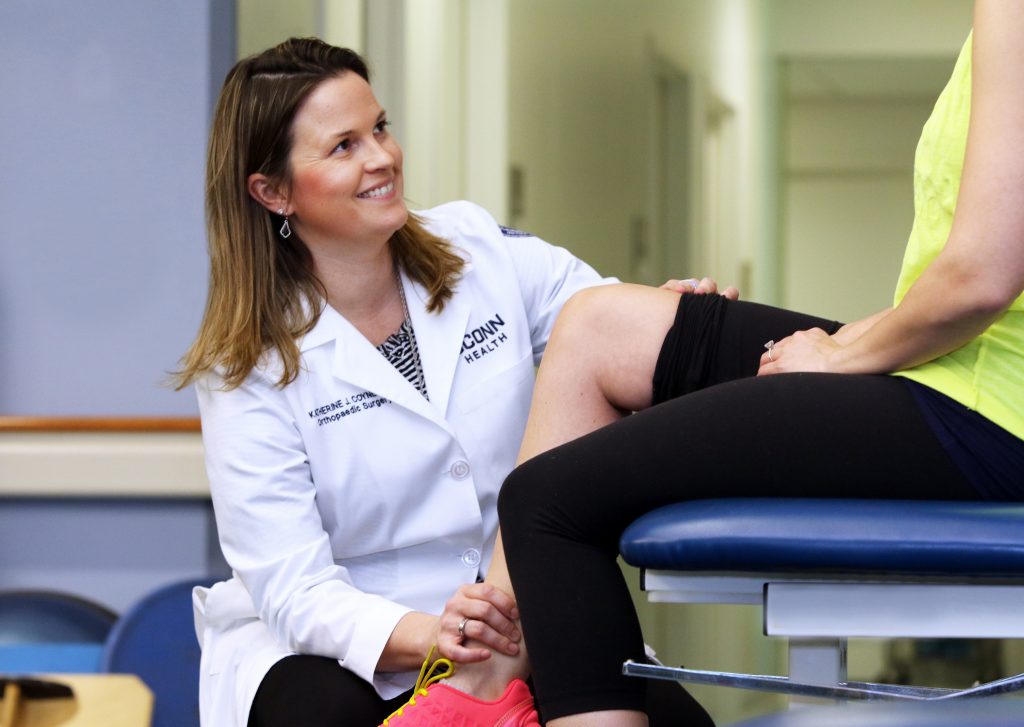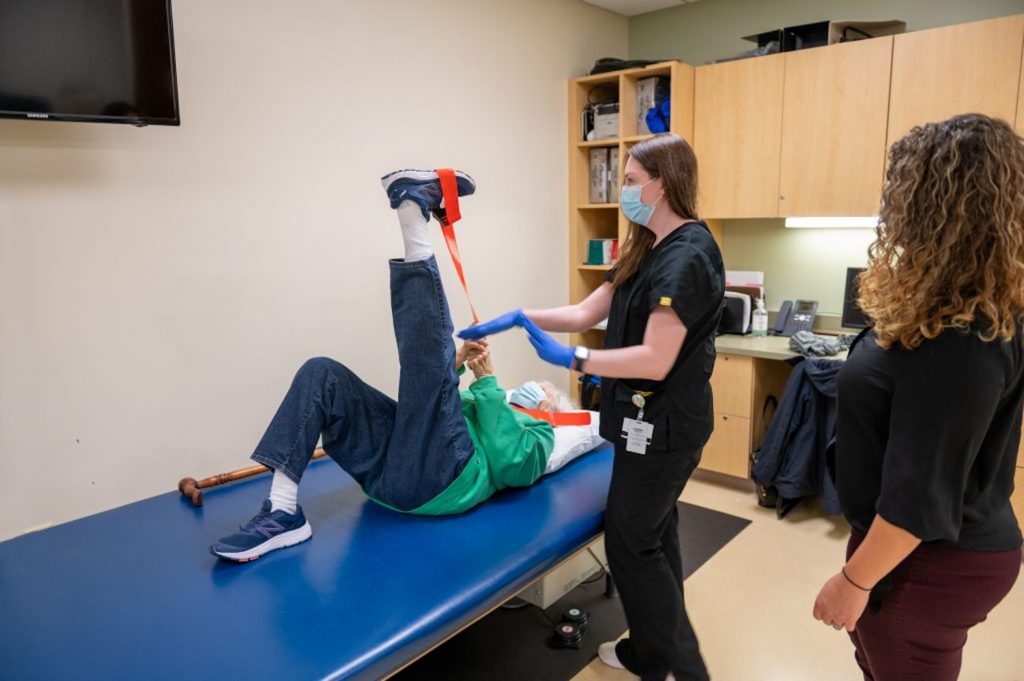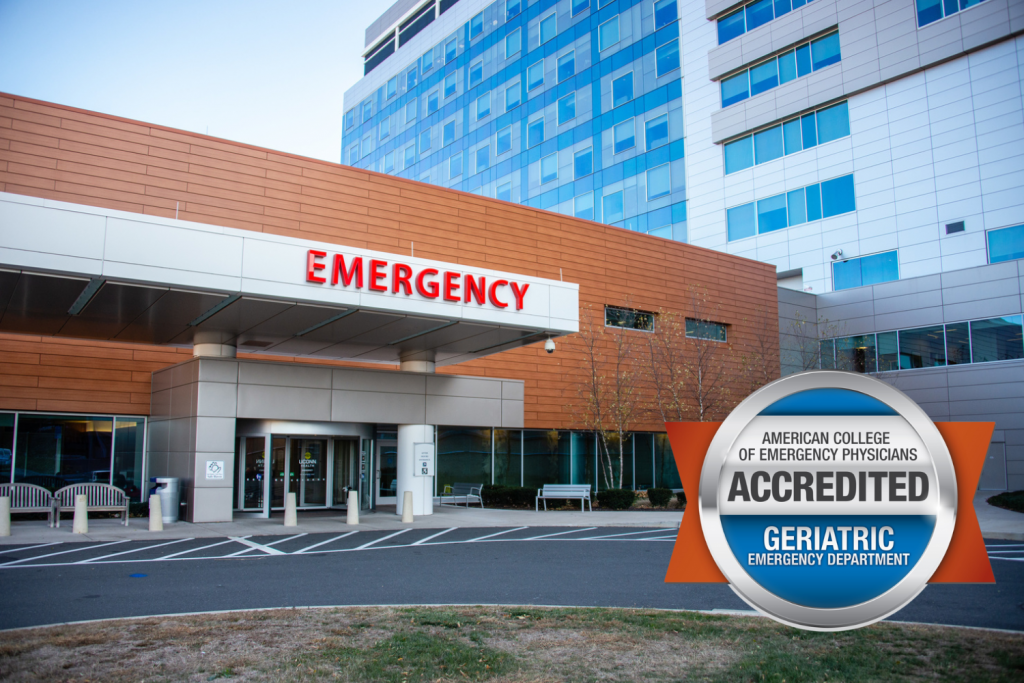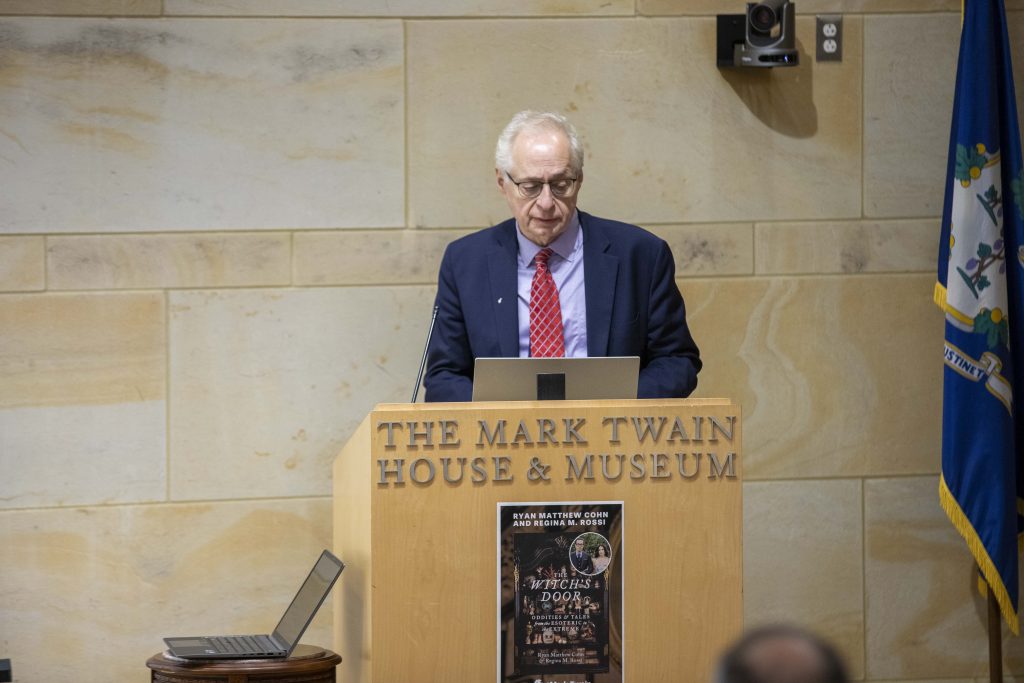Aging
UConn Joins Age-Friendly University Global Network
The organization is reimagining higher education’s role in an aging society
May 21, 2025 | Rosa E. Raudales
Supervised Exercise Improves Broken Hip Outcomes in Older Women
JAMA Network Open Publishes Study Results of the STEP-HI Clinical Trial, Finding That Testosterone Gel Use in Women Recovering from Hip Fracture Does Not Improve Outcomes Compared to Supervised Exercise Alone
May 15, 2025 | Combined Reports
UConn John Dempsey Hospital Recognized as an Age-Friendly Health System
UConn, John Dempsey Hospital has achieved special recognition as an Age-Friendly Health System — Committed to Care Excellence
May 12, 2025 | Jennifer Walker
UConn Health 2025 Exceptional Women in Medicine
Ten of UConn Health's female doctors named to Castle Connolly 2025 Exceptional Women in Medicine distinction
March 13, 2025 | Jennifer Walker
UConn Health Minute: The Future of Aging
The UConn Center on Aging conducts a variety of studies on aging-related issues. In this UConn Health Minute, Jenna Bartley, PhD, discusses her research looking at ketone ester supplementation to promote health, function and independence in older adults.
January 27, 2025 | Carolyn Pennington
Dr. George Kuchel to Serve on the NIH National Advisory Council on Aging
Dr. George Kuchel has been invited by Xavier Becerra, The Secretary, Department of Health and Human Services (HHS), to serve on the National Advisory Council on Aging.
January 13, 2025 | Jennifer Walker
UConn John Dempsey Hospital Joins National Age-Friendly Health System Movement
UConn John Dempsey Hospital was recently accepted for participation in the national Age-Friendly Healthy Systems Movement to improve health care for older adults.
December 11, 2024 | Jennifer Walker
UConn John Dempsey Hospital Earns Geriatric Emergency Department Accreditation by the American College of Emergency Physicians
As an Accredited Geriatric Emergency Department, John Dempsey Hospital’s protocol-driven approach to geriatric care allows us to provide superior, tailored care. Seniors who visit our emergency department can be assured that the facility has the necessary expertise, equipment, and personnel in place to provide optimal care.
October 30, 2024 | Jennifer Walker
UConn’s Experts in Aging Honor Colleagues and Highlight Advances
'This is a time of remarkable innovation in geriatric medicine and gerontology'
October 21, 2024 | Kim Krieger
New Geroscience Program Delves Into the Mysteries of Aging
'Our goal is to give as many students as possible a greater appreciation and understanding of aging'
August 20, 2024 | Kim Krieger









